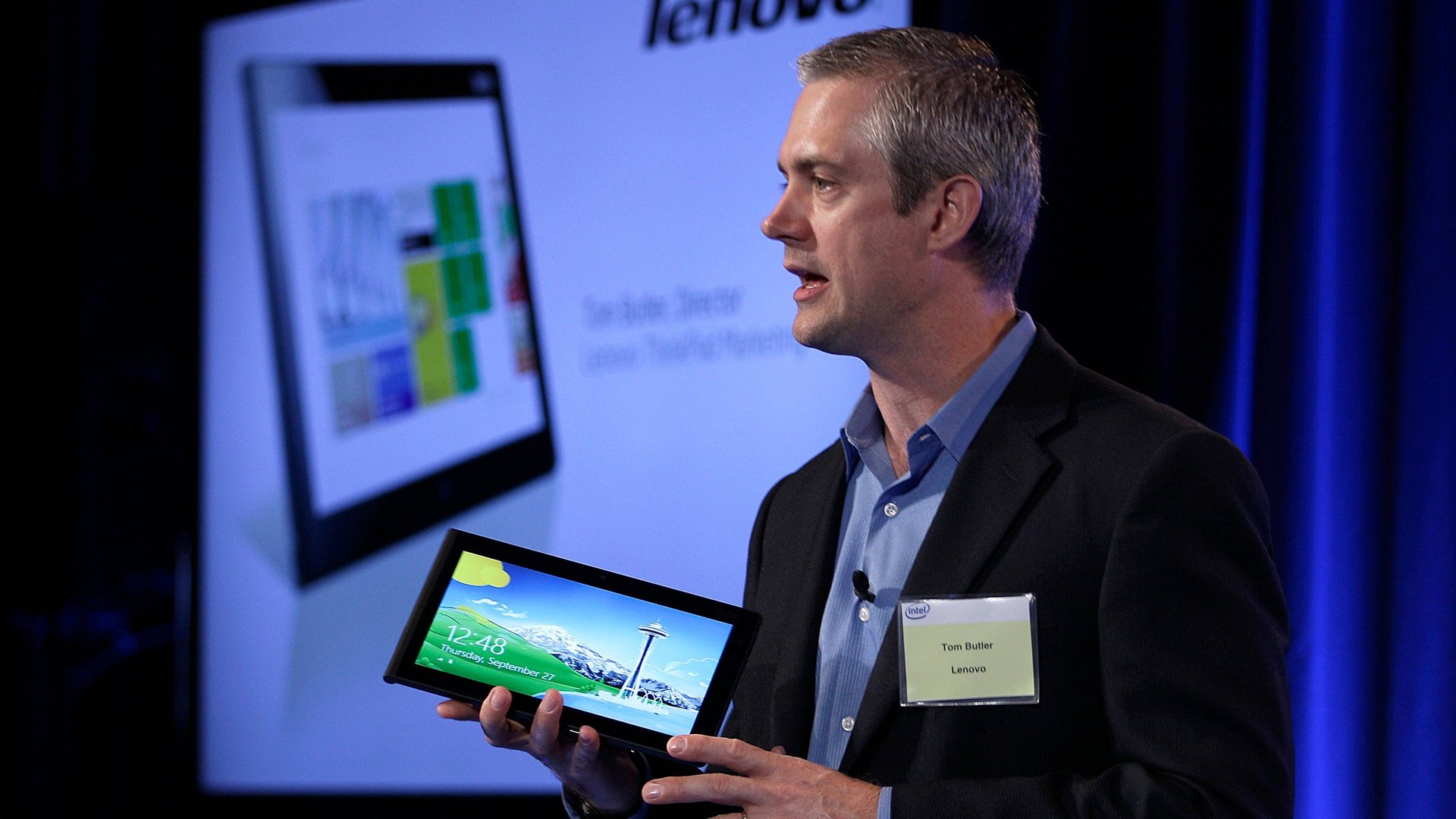More bad news for Intel: One in four computers is now a tablet, Apple could move to different chips
First piece of bad news for Intel: The chips now at the heart of the iPhone and iPad will some day be good enough to power Apple’s desktop and laptop computers, sources at Apple have told Bloomberg. Right now these computers run on chips from Intel, while Apple’s mobile devices use customized versions of designs licensed from British chip-maker ARM. The latter are known for their low electricity use, but their processing power has been steadily improving.


First piece of bad news for Intel: The chips now at the heart of the iPhone and iPad will some day be good enough to power Apple’s desktop and laptop computers, sources at Apple have told Bloomberg. Right now these computers run on chips from Intel, while Apple’s mobile devices use customized versions of designs licensed from British chip-maker ARM. The latter are known for their low electricity use, but their processing power has been steadily improving.
Second piece of bad news: If you add up all traditional PCs and tablets shipped in the third quarter of 2012, tablets account for 24% of the total, calculates Kevin Tofel of GigaOm. Adding them together and calling the sum “computers” makes sense given that one in four tablet owners recently said that their tablet is now their primary computer.
Put these two together, and it means Intel could see a large chunk of its market disappear quite fast. The company, which has long dominated the microprocessor business, has of late encountered a number of challenges to its preeminence. Its chips power virtually none of the Android or Apple devices that made up almost the whole of the tablet market as of last quarter, though they will start to appear in a few of the mobile devices sold in this quarter.
Without a bigger role in the mobile chip market, and if it now starts being squeezed out of even the PC market, the company could be relegated to the sort of high-end servers that power the Internet—and even that business is under threat. In many ways Intel’s fate continues to be tied closely to that of Microsoft Windows, which is just now appearing on a host of new devices. Unfortunately for both companies, reviews of Windows 8 and the new tablets and notebooks that run it have been mixed.
Compounding Intel’s woes are the fact that at least two notable new PCs don’t run on Intel chips at all: Microsoft’s much-ballyhooed Surface (which runs the confusingly-named Windows RT) and Google’s new Chromebook, a $250 laptop manufactured by Samsung. Both use chips designed by ARM, known for their low power consumption but increasingly punchy performance.
And it’s not as if the tablet market is getting any easier to enter. Yet another competitor in the field of battery-saving processors has arrived in the form of a California-based company called MIPS. MIPS aims to take market share away from ARM in the realm of processors for sub-$200 tablets. With such a low price, MIPS might, if its chips are good enough, end up with more market share in tablets than Intel in the not too distant future.
Finally, ex-Nokia industry analyst Horace Dediu has projected that tablets will be selling faster than PCs by the autumn of 2013, further eroding Intel’s opportunities in the PC market. Unless Windows 8 turns out to be good enough to allow Windows machines, which still rely on Intel chips, to claw back market share from either Apple’s PCs or its tablets, it’s hard to see Intel remaining as anything more than an increasingly specialized niche player.